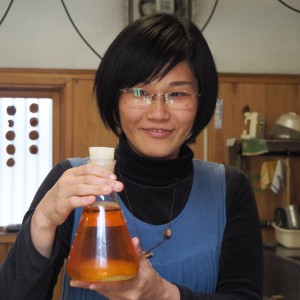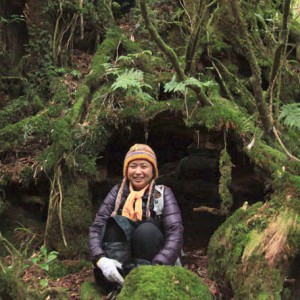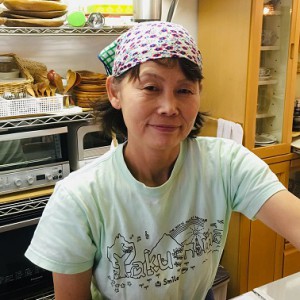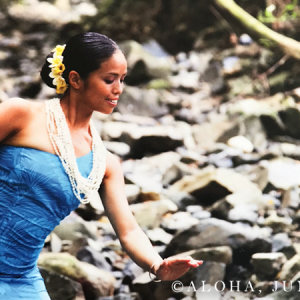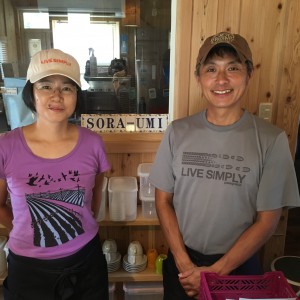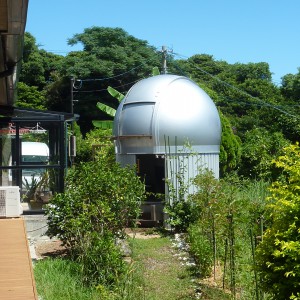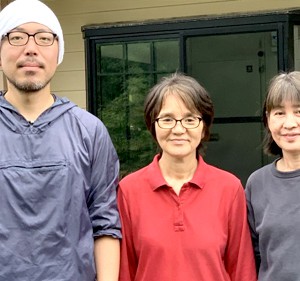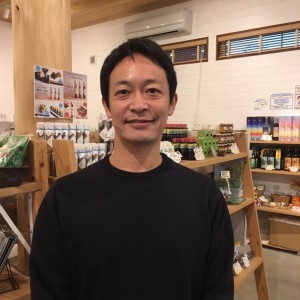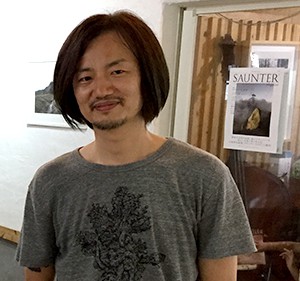Ki Yujiro/Owner Maruki Store
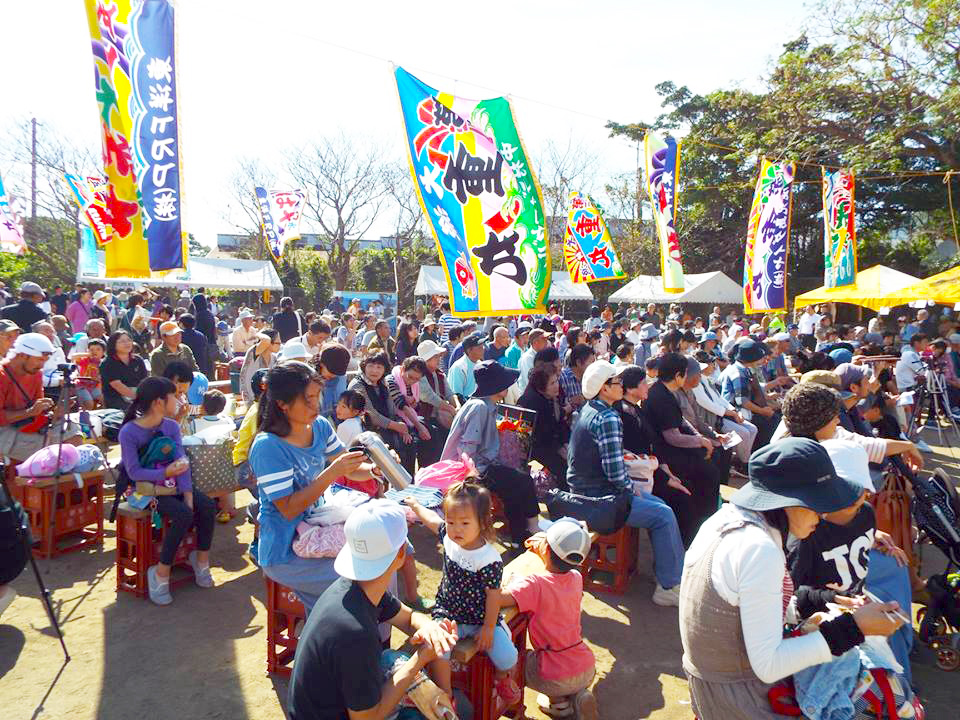
Harumaki is a flying fish town. Every fall they hold the “Harumaki Flying Fish Festival.” Colorful flags with the names of fishing boats – often used to signal a large catch – decorate the festival and charcoal-grilled flying fish are handed out. There are also fish filleting demonstrations and a flying fish quiz. The festival, true to its name, is all about flying fish. The festival even has its own theme song, “Fly Flying Fish,” and its own character “Tobimaru-kun” (Little Flying Boat), evidence that the locals are giving their all.
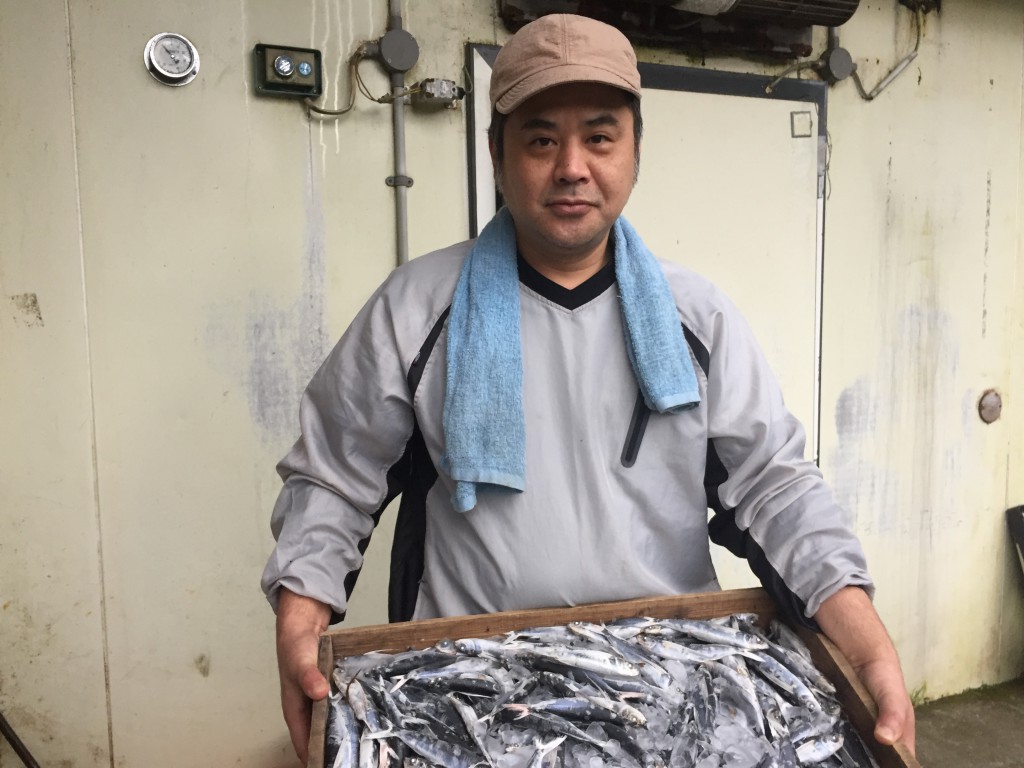
This community has a flying fish catch nearly equal to Anbo which is #1 in Japan, and many families here make a living fishing. Harumaki is also home to the Maruki Store. The products typically sold here include minced flying fish and deep-fried flying fish cakes. The fish cakes are a traditional dish, made by first flavoring the minced fish meat, shaping it into a paddy and deep frying it. Unlike the fish cakes on the Kagoshima mainland that often make use of walleye pollack as a filler, the Maruki Store uses 100% freshly caught flying fish. Characterized by their chewy elasticity and rich taste, flying fish cakes are soul food for the islanders.
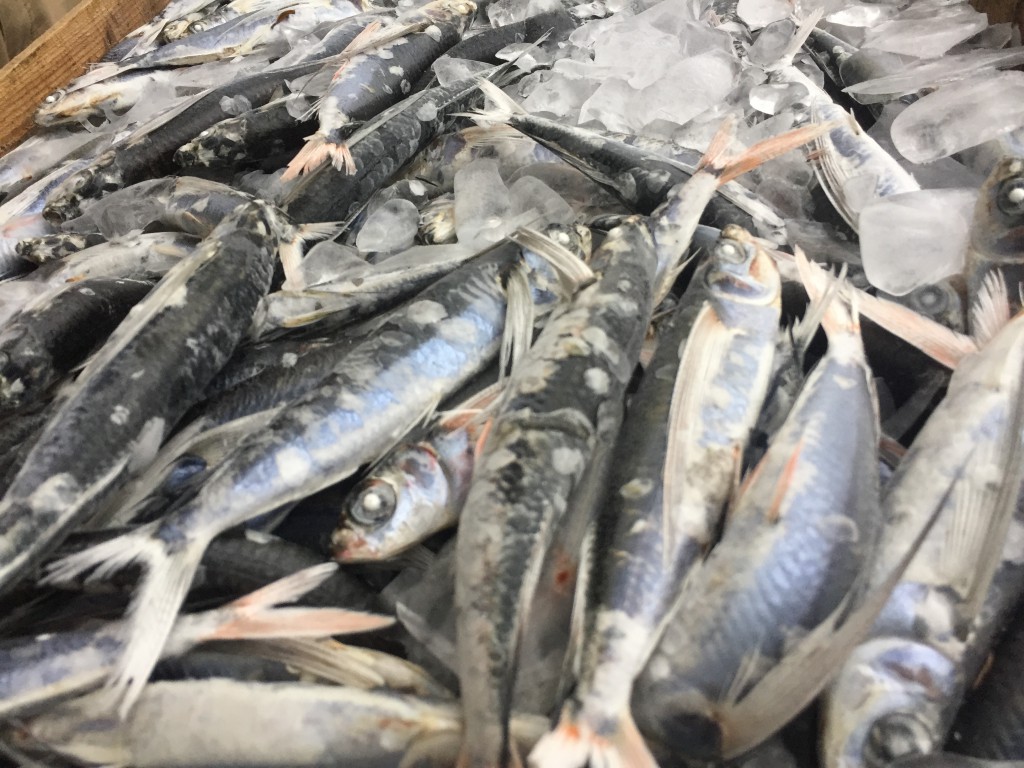
The Maruki Store is in its second generation. Ki-san, it’s current owner, left the island to work in marketing and merchandizing for a trading company that specialized in the food industry. In that capacity, he traveled widely in Japan and overseas as well. While developing and marketing seafood products, he became aware of the “issues that confront the fishing industry but also of its potential for growth.” This led to Ki-san’s re-evaluation of the family business and his decision to return to Yakushima. When he returned to the island, Ki-san first undertook the creation of new packaging. Working with a local graphic designer, he switched to a more eye-grabbing package and turned flying fish mince, which was for the most part only sold to islanders, into a souvenir to be purchased by tourists as well.
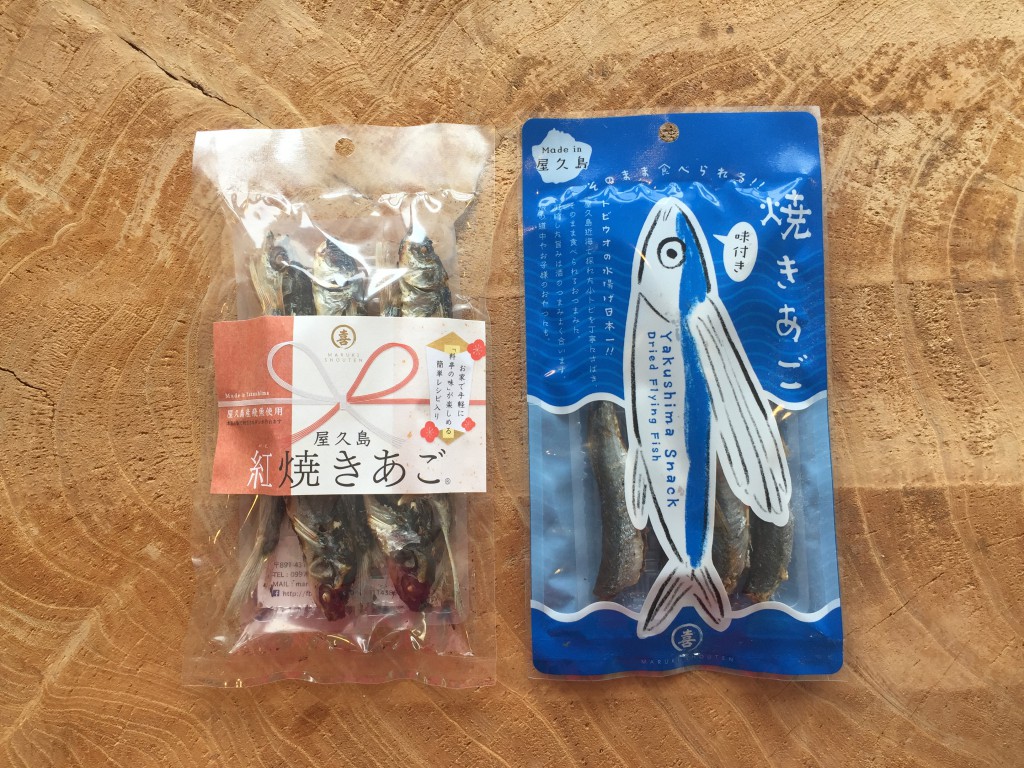
Recently, Ki-san has been developing “yakiago” (“ago” is another name for “flying fish”) products that make use of smoked flying fish. There are many varieties of flying fish and some 30 species have been identified in the waters around Japan. Two medium-sized varieties, “hama” and “aya” are most commonly caught by Yakushima’s fishermen. Smaller varieties of flying fish that are used in Nagasaki, and elsewhere, where most of the “yakiago” are sold, were caught by Yakushima’s fishermen but not eaten here on the island. Ki-san, in collaboration with local fishermen, spent two years looking for a smaller variety of flying fish suited for “yakiago” and developing a new product. This was challenging work that required the use of smaller mesh nets and different processing methods. According to Ki-san, this new road was a bumpy one.
What they found was a small flying fish the size of one’s palm. Unlike Nagasaki where larger varieties of flying fish are caught before they mature (and before they spawn), Yakushima’s fishermen are now catching and processing fully grown, mature “tsumari” flying fish. Because they have already spawned, this doesn’t place as much of a strain on the environment. After gutting the fish, they are smoked using high-quality charcoal from the neighboring island of Tanegashima. They’ve also figured out how to capture fluids that are used to made a clear soup broth.
Ki-san’s present goal is the further popularization of the island’s own “yakiago” products. Because the fins of the male “tsumari” flying fish are a reddish hue, he named the new product “Yakushima Beni (Red) Yakiago.” He made it a registered trademark and is working to develop the brand. With enthusiasm, Ki-san tells me, “Tsumari flying fish are part of the current flying fish by-catch. By making use of the by-catch, the entire haul can be sold at a set price, increasing the fishermen’s income and creating a marketplace in which others can work. With the expansion of this primary industry, new business is created for people like me who are food processors.”
Ki-san’s efforts to develop a new island specialty have only just begun.
Written by: Takata Mikako, Issou Coffee Roastery
Maruki Store
- 2437-97 Anbo, Yakushima
- Telephone: 0997-46-3567
- https://maruki-yakushima.com


